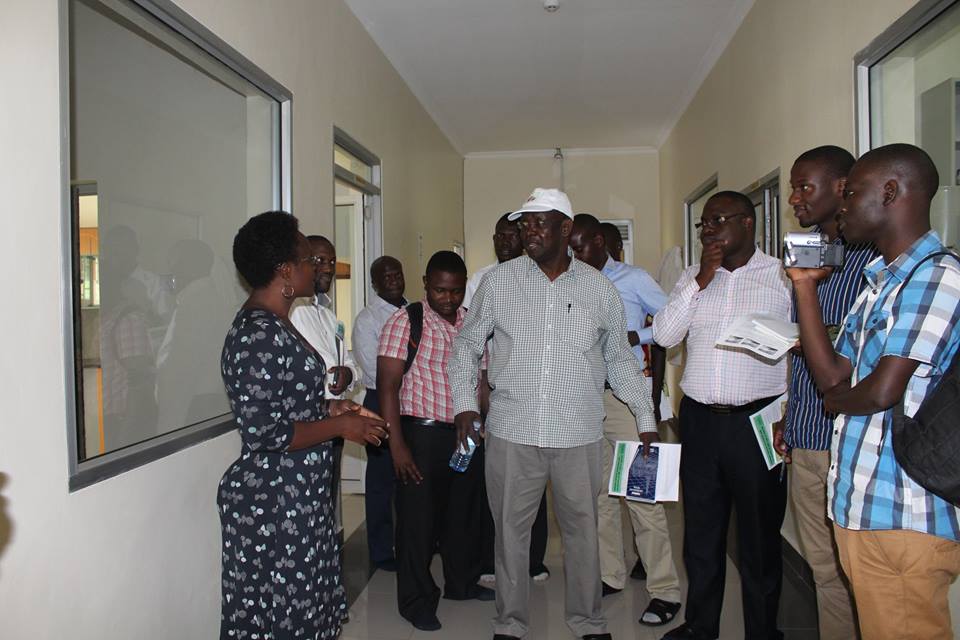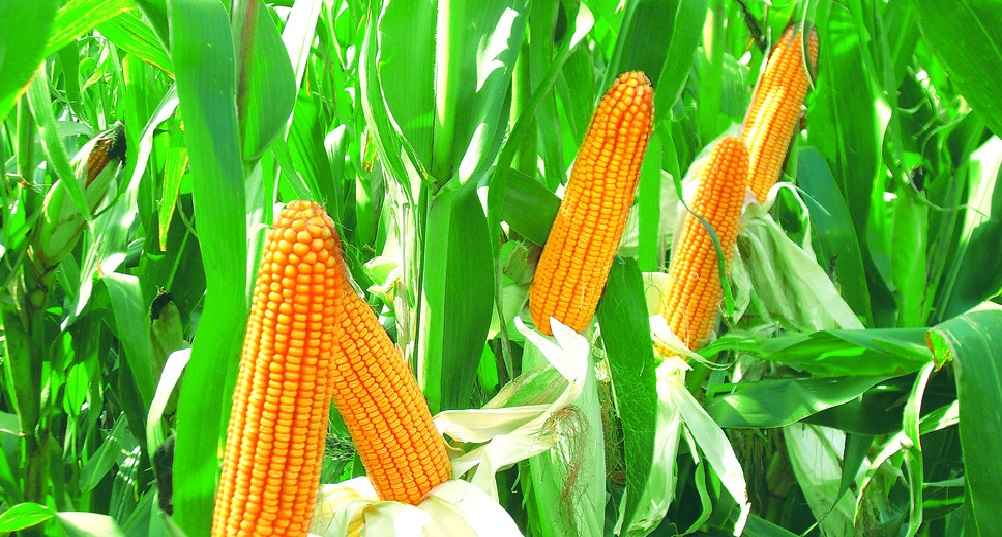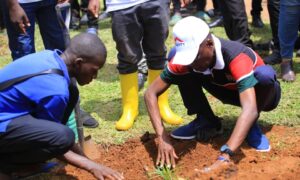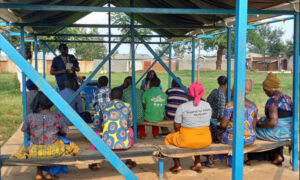
Dr. Apio Hellen Beatrice explaining to Ministry of Science, Technology and Innovation officials at the National Crops Resources Research Institute in Namulonge on the conservation of our local crop species
The government of Uganda under the Ministry of Science Technology and Innovation has vowed to intensify the campaign of making Uganda the regional food basket.
Regardless of existence of threats related to climate change and other factors the agricultural sector is facing, the hope of making this history has been put on the forefront with the introduction of Drought and pest resistant Genetically Modified Organisms (GMO) crops.
Cassava, Maize, Bananas, Rice, Sweet and Irish potatos are some of the crops that are targeted since they are the most food crops grown by Ugandan farmers yet they are the most affected crops by pests and unfriendly climate changes.
With such prospects of making such challenges history, The Permanent Secretary of Ministry of Science, Technology and Innovation Mr. Obong O. O David says that government’s commitment is to ensure that the GM crops technology is immediately adopted so that the problem of Food security is solved.
Obong adds that its unfortunate that a lot of farmers have continuously benefited less from their huge efforts injected in agribusiness but hope of reaping more and making Uganda Africa’s food basket is now being tackled.
“The biggest problem our people are facing is that they are not aware about this good move. With the adaptation of drought and pest resistant GM crops, Iam so sure that our economy will be boosted because the biggest percentage of Ugandans depends on farming which is the issue we are fighting for to see that its revamped with profit making, pest-free and internationally accepted varieties.” PS. Obong said.
Dr. Otim Michael, an expert Cereal Research, notes that sometimes Ugandans are attacked by hunger crisis, pests among other challenges not because they are lazy but simply because they lack modern skills and knowledge on proper season timing and which variety is most suitable for growth.
He highly recommends that Biotech/GM crops are the best solution to the issue of hunger crisis since they guarantee high yields and pest-free products thus enabling food security not only at the household but to a regional level too.
Facts about GM Crops and how they can boost the economy.
According to National Crops Resources Research Institute-Namulonge, About 86 per cent of farmers grow maize where also Maize Stem Borer contributes to about 30 per cent loss. Drought kills maize and causes a loss of $19.4m every year. Yet the economic benefits from adopting GM maize are estimated at $25.4m.
 Banana Bacterial Wilt (BBW), Uganda loses $299.6m worth of bananas annually. Uganda is Africa’s leading banana producer and will lose that position if the problem continues. Naro has developed BBW-resistant genetically modified (GM) banana varieties. Over 13 million Ugandans depend on bananas for food and income.
Banana Bacterial Wilt (BBW), Uganda loses $299.6m worth of bananas annually. Uganda is Africa’s leading banana producer and will lose that position if the problem continues. Naro has developed BBW-resistant genetically modified (GM) banana varieties. Over 13 million Ugandans depend on bananas for food and income.
Cassava Brown Streak Disease (CBSD) causes an annual loss of $24.2m. More than 10 million Ugandans consume cassava as main food and 75 per cent of farmers grow it. Naro has also developed CBSD-resistant GM cassava. Potential yield loss due to sweet potato weevil is 98 per cent. Uganda is Africa’s most important sweet potato producer but it may lose out. But adoption of GM potato could earn $16m annually.
It’s also revealed that Uganda consumes 175,000 metric tons of rice and we save $30m by growing it ourselves. But soil-related stress has hampered production, which scientists say can be resolved if we grow low-nitrogen and drought-resistant GM rice.
In this same plea, Uganda is still conducting field trials in Kasese, Namulonge, and Serere districts as the country awaits the passing of the Biosafety and Biotechnology Bill. Conventional drought-tolerant maize hybrids are currently marketed under the trademark DroughtTEGO after almost seven years of research.
Since 2013, a total of 786 tons of seed have been availed to farmers for cultivation, conservation reaching about 200,000 farm-households and benefiting 1.8m people in the pilot countries.
This project, has received a general or environmental approval of the transgenetic (GMO) drought-tolerant (DT) trait in South Africa and the Insect-pest protected Bt trait in Kenya.




























